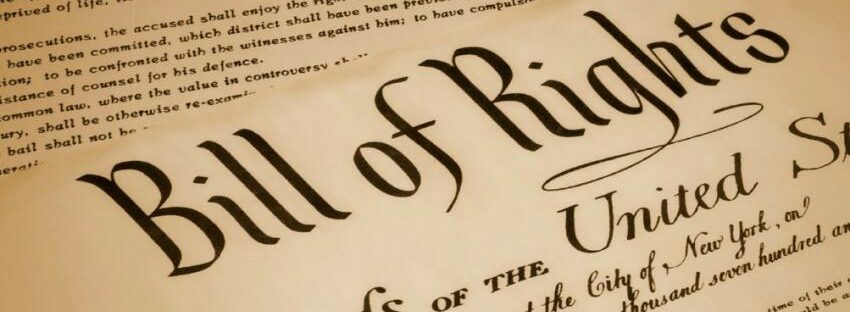Change the Bill of Rights? Don’t be so sure
December 14, 2021

This syndicated op-ed, originally in Inside Sources, has been published in dozens of newspapers across the country as part of a debate answering the question: Should the Bill of Rights be updated?
We live in a time of division and uncertainty. Some people say that the only path forward is to fundamentally “update” our government, including such basic documents as the Bill of Rights.
At first glance, it might seem like a good idea. After all, the Bill of Rights changed the original Constitution by adding 10 amendments. And now the Bill of Rights itself is 230 years old – an anniversary we observe on Dec. 15. Surely, we’ve made progress since then. Surely, we know better than James Madison and the other “old, dead white men” who wrote and adopted the Bill of Rights. Surely, it’s time.
Don’t be so sure.
Those who advocate “updating” the Bill of Rights need to remember what it is they want to change. Founders like Madison knew that government does not give us our rights. They come from the “laws of nature and of nature’s God,” as the Declaration of Independence puts it. The Bill of Rights proclaims fundamental rights – like freedom of speech and freedom of religion – we already have as human beings and citizens. Even if the First Amendment didn’t exist, for example, every American would still have the right to communicate their opinions and practice their faith. The Founders wrote down those rights just to make sure everyone understood the liberties they already had.
To update the Bill of Rights, then, is to try to alter the fundamental principles of a free society. It’s like trying to “update” the law of gravity. We can understand more deeply what gravity means, but it doesn’t change the principle.
So the real question is not whether we should update the Bill of Rights. The question is whether we truly have the knowledge and understanding to exercise those rights and govern ourselves responsibly?
Unfortunately, too many Americans – especially young people – don’t know the basic facts of our history and don’t have even a rudimentary understanding of such great documents as the Constitution and Bill of Rights. According to the most recent National Assessment of Education Progress, released last year, only 24 percent of eighth-grade students scored “proficient” in civics and even fewer, 15 percent, were proficient in history. Those students will soon be graduating from high school.
Even worse, too many young people don’t understand why America deserves their respect and devotion. A Gallup survey showed that only 24 percent of young people are “extremely proud” to be American. According to the survey, the gap between young people and older generations is the largest ever.
Why? Unlike previous generations, too many young Americans are not discovering the true story of our country. They are not learning that America was founded on principles of freedom and that our history is the story of our struggle to live up to those principles. They are not learning, as the great Black abolitionist Frederick Douglass said, that the Constitution and its Bill of Rights is a “glorious liberty document.”
Of course, the Constitution wasn’t perfect. It has been amended 27 times, including the Bill of Rights. But every amendment should be a change that brings the document more – not less – in line with our founding principles of individual liberty, personal responsibility and limited government. That’s what the Bill of Rights did, and that’s why we need to keep it as is. Changing it now would be going backward, not forward.
To truly go forward, we need to change the civic education of Americans – especially our young people. We need to put aside the history and civics textbooks and help students dig into the founding documents themselves like the Declaration of Independence, Constitution and the Bill of Rights. Students need to rediscover the Founding principles that unite us – that make us “one people,” as the Declaration says.
To bring the country back together and go forward together, the answer is not to change our Bill of Rights. The answer is to restore our shared history and principles to their rightful place in the hearts and minds of the American people, especially our young people.
Jeffrey Sikkenga is executive director of the Ashbrook Center at Ashland University in Ashland, Ohio, an independent educational center specializing in the study and teaching of U.S. history and government.

